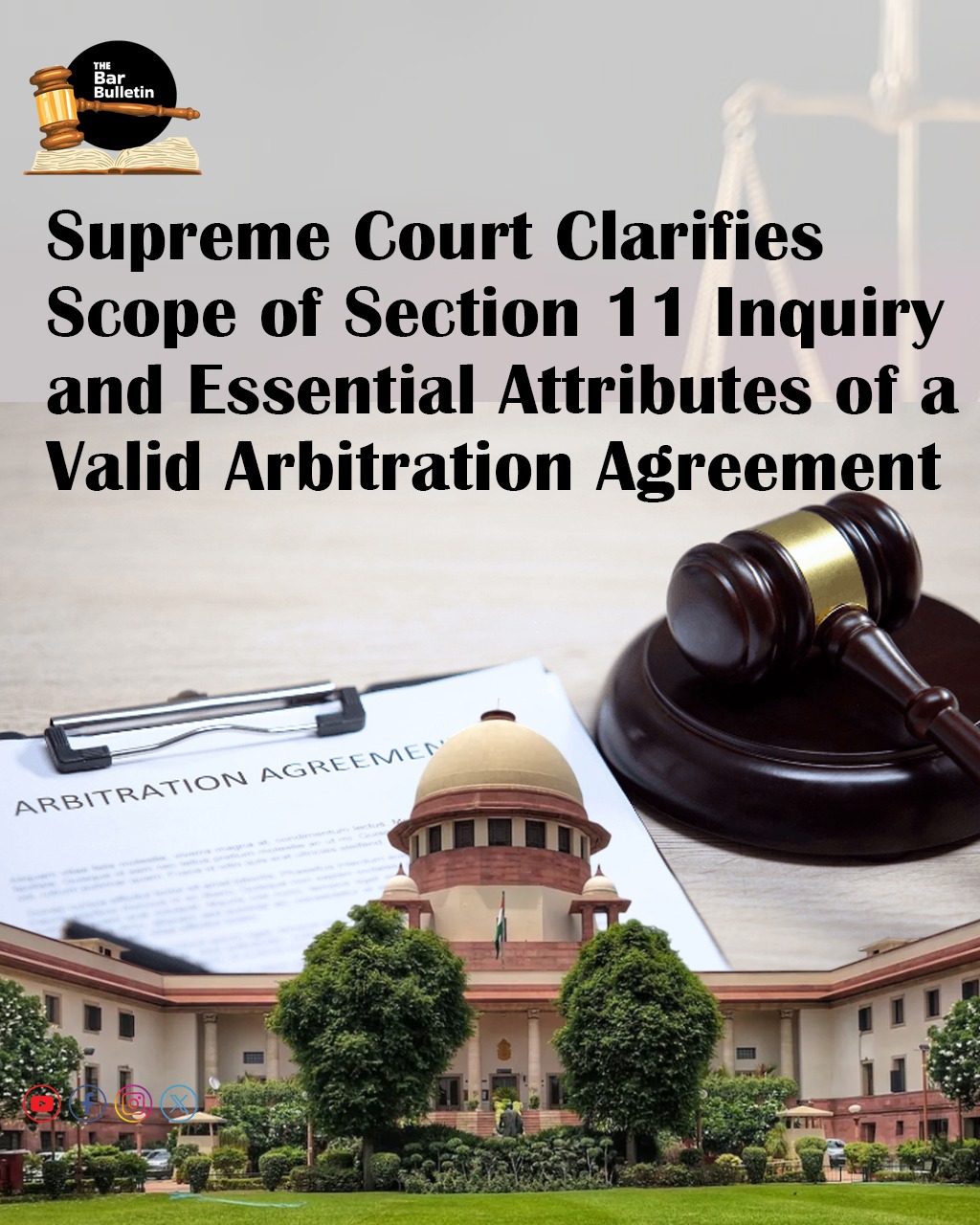The Supreme Court dismissed the appeal by the appellant, BGM and M-RPL-JMCT (JV), holding that the relevant clause in the contract did not constitute a binding arbitration agreement, as it merely enabled the possibility of arbitration subject to future consent.
The appellant had earlier sought the appointment of an arbitrator under Section 11(6) of the Arbitration and Conciliation Act, 1996, invoking Clause 13 of the General Terms and Conditions in a transportation contract with Eastern Coalfields Limited. The appellant argued that Clause 13 constituted a valid arbitration agreement. The respondent opposed the application, contending that Clause 13 was not a binding arbitration agreement but merely an enabling provision. The High Court of Calcutta rejected the application, reasoning that the clause did not contain the essential elements of an arbitration agreement, notably relying on the use of the term “may be sought.” This order was challenged before the Supreme Court.
The Supreme Court, through a Bench comprising Justice P.S. Narasimha and Justice Manoj Misra, referred to the Constitution Bench judgment in Interplay Between Arbitration Agreements under Arbitration, 1996 & Stamp Act, 1899, In Re[1], reiterating that under Section 11(6A), the referral court’s inquiry is confined to the prima facie existence of an arbitration agreement.
The Court distinguished between “examination” (prima facie scrutiny under Section 11) and “ruling” (substantive determination under Section 16 by the arbitral tribunal). It further relied on established authorities such as Jagdish Chander vs Ramesh Chander[2], Mahanadi Coalfields Ltd. vs IVRCL AMR JV[3], and Cox and Kings Ltd. vs SAP India Pvt. Ltd.[4] to elaborate on the essential characteristics of a valid arbitration agreement. The Court clarified that the mere presence of the term “arbitration” in a dispute resolution clause does not automatically render it a binding arbitration agreement if it lacks unequivocal intent and obligation.
The Court held that Clause 13, by using the phrase “may be sought through arbitration”, failed to establish a definitive and binding commitment to resolve disputes through arbitration. It reiterated that arbitration agreements must disclose a clear determination and obligation to arbitrate, rather than leaving open the possibility for future mutual consent.
In result, the appeal was dismissed, and the Court confirmed the High Court’s view that the clause was not a binding arbitration agreement under Section 7 of the Act.
[1] (2024) 6 SCC 1
[2] (2007) 5 SCC 719
[3] (2022) 20 SCC 636
[4] (2024) 4 SCC 1
![]()



